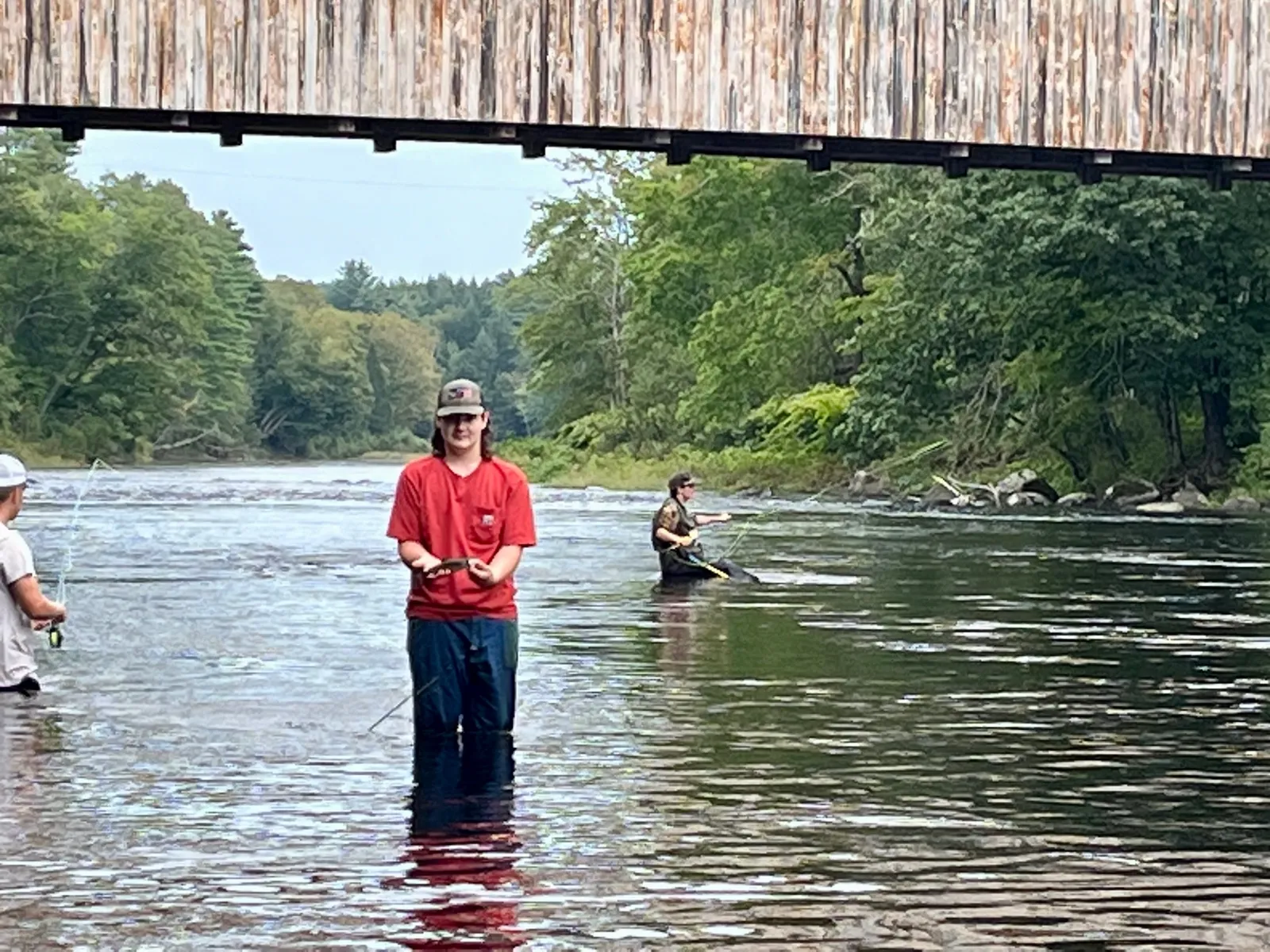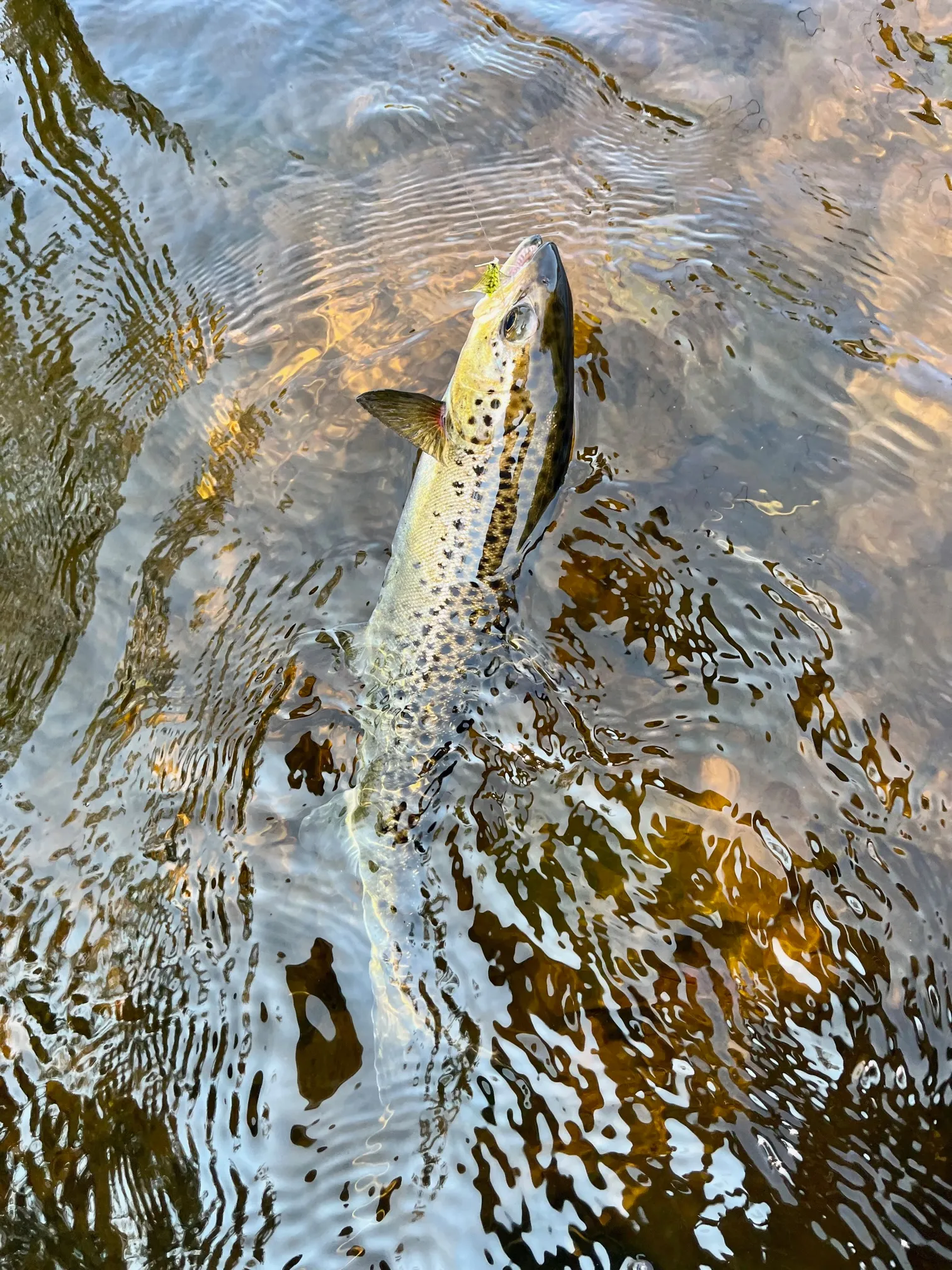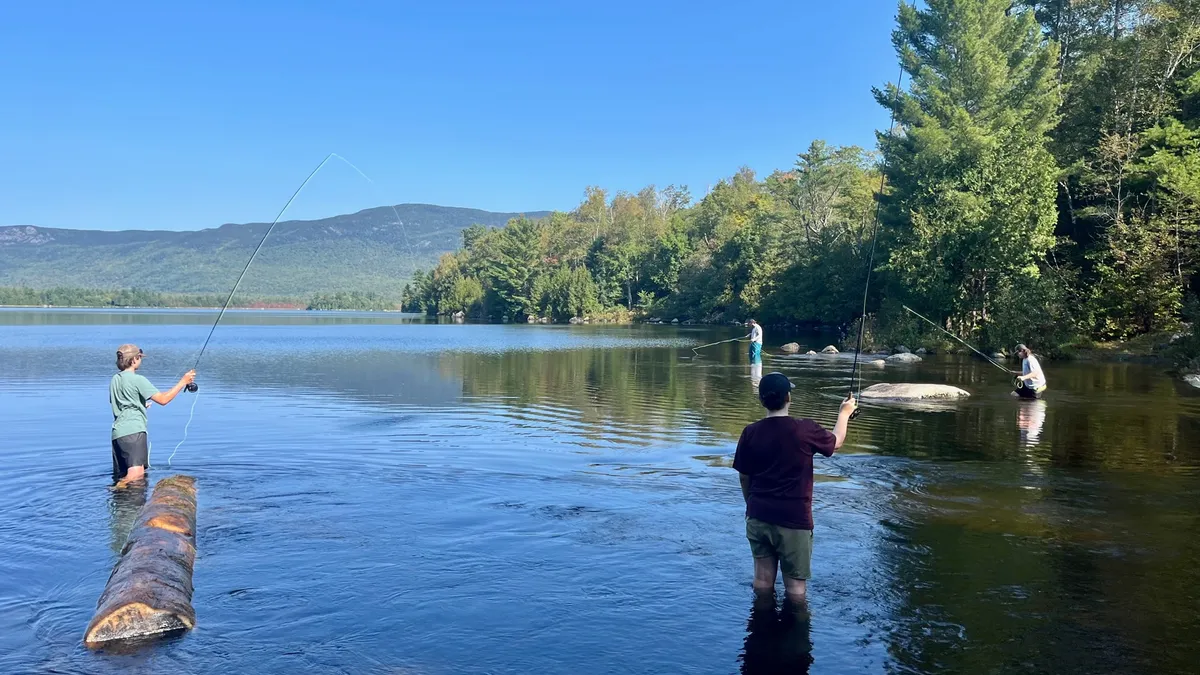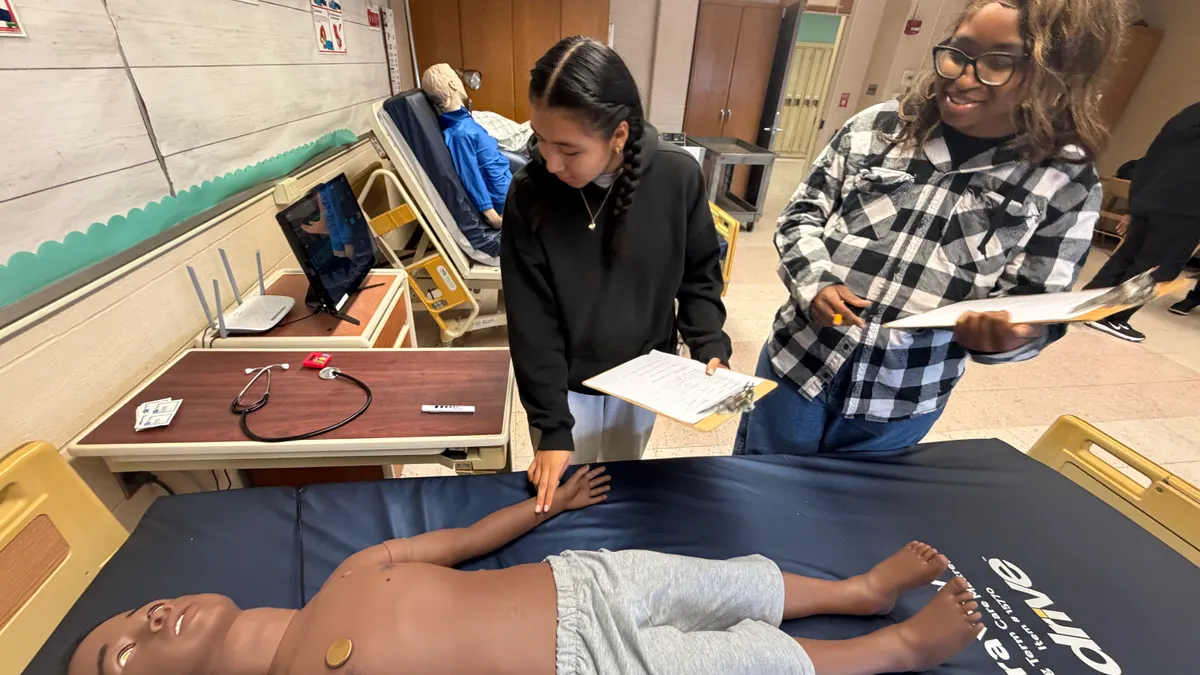When Nick Miller interviewed for an English teaching position at Nokomis Regional High School in Newport, Maine, in spring 2022, Principal Mary Nadeau asked him what course he would teach if he could teach anything he wanted.
"Fly-fishing," Miller responded immediately. In fact, he had already begun thinking about how he could get students at the school in rural, central Maine excited about the sport. Miller had been passionate about fly-fishing since his childhood growing up in central Maine. He enjoys the outdoors and being near the water, waiting for the fish to take the bait that sits on or just below the water surface after he casts a line.
Miller was hired and soon after starting in fall 2022, he and the principal began discussing the possibility of creating a semester-long fly-fishing elective that would incorporate four English standards: reading, writing, speaking and listening.
"When you can get students excited about what they're doing and what they're learning, that's when you're really going to have some great learning happening."

Mary Nadeau
Principal of Nokomis Regional High School
Miller, who is in his 11th year of teaching, also started working out the logistics of taking a dozen students to nearby waterways to learn and practice the sport. The first fly-fishing course launched last spring, and another is offered this fall.
"I've been really impressed with how open to the challenge they are," Miller said of his students. "They've enjoyed the way that fishing connects them with new places."
For Nadeau, the fly-fishing course hits many of the goals educators have for students, including rigorous coursework, engaging activities and time to connect with peers and teachers.
"When you can get students excited about what they're doing and what they're learning, that's when you're really going to have some great learning happening," said Nadeau, who has been at Nokomis for 32 years, the last 15 as principal.
Nadeau said a classroom really comes to life "when you have that beautiful connection of the adult learner … [who] is really passionate or excited about what they're sharing with their students and that aligns with maybe something that's hooked the students.”
Learning while fishing
In Miller's fly-fishing course, students learn skills and techniques for catching and releasing fish while also developing an appreciation and knowledge of waterways and their ecosystems.
There are also academic assignments around the history, literature and cultural aspects of the sport. For example, students read "A River Runs Through It" by Norman Maclean, as well as works by John Gierach, Roderick Haig-Brown and essays from The Drake Magazine, a publication for fly-fishing enthusiasts.
In addition, students work on technical, narrative and journal writing, as well as study environmental and economical aspects around fishing.

In designing the course, Miller not only had to plan a curriculum that covered academic standards, he had to think through many logistics, such as field trips that coordinated with open water fishing season, whether students could keep the fish they catch (they can but none have chosen to so far), and how to source equipment. About a dozen students each semester have taken the course
Far Bank, a fly-fishing company, donated much of the equipment, he said. The school sits on 100 acres with access to a pond where students can practice their fly-fishing skills, and beyond that the class also takes trips to nearby waterways.
So far students have caught bass, perch, brook trout and landlocked salmon.
Tenth-grader Gabriel Guide, who is taking the fly-fishing course this fall, has enjoyed the class's writing assignments. But the best part, he said, is being in nature. He likes the solitude and the satisfaction of catching a fish. For Gabriel, fly-fishing is more difficult than other types of fishing.
"You actually have to tire out the fish. You actually have to pull in the line," Gabriel said.
Outside the traditional classroom
Nokomis Regional High School, which has 640 students in grades 9-12, offers several interdisciplinary classes aimed at merging core academic instruction with engaging topics and activities. For instance, an Elements of Crafting course focuses on English and math skills using crafting activities. The Are you a Mainer? course combines lessons in English, world languages and career development to raise awareness of careers and cultures across different regions in the state.
"As a school we've just been very interested in being a little more innovative in a way, bringing some joy back to the high school experience," Nadeau said. Developing these creative and engaging courses began pre-pandemic, she said, but then COVID-19 fueled desires to take some learning experiences outside.

The innovative approach is encouraged by the school's six-year participation in the Wider Learning Ecosystem cohort, a group of New England-based schools that get grants and resources from the Barr Foundation to design authentic learning experiences outside traditional classroom formats.
Jenny Curtin, director of education for the Boston-based foundation, said that while the foundation didn't have a fly-fishing course on its radar, the class is a good example of how meaningful learning experiences can be scaled and made more accessible to all students.
The Nokomis class also illustrates the value of bringing a variety of stakeholders together to develop and refine innovative learning opportunities, Curtin said.
"We have high expectations for not only our students but also for our adults and their creativity and bringing part of their passion to the work as well," Curtin said.







 Dive Awards
Dive Awards












